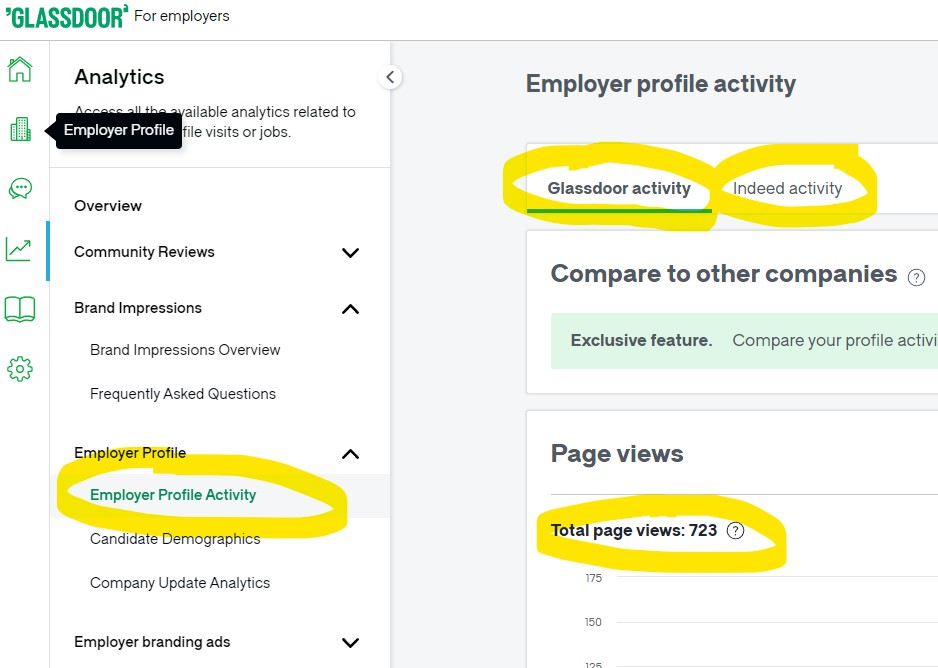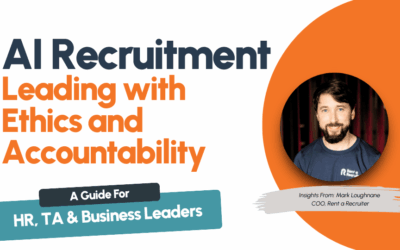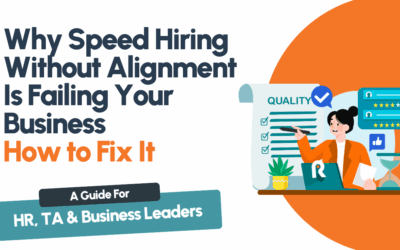
Author: Mark Loughnane, Chief Operating Officer
With over a decade of experience in operational leadership and talent strategy, Mark is passionate about helping organisations build strong employer brands that attract top talent. His article insights focus on transforming feedback into actionable strategies that enhance workplace culture and reputation.
In today’s competitive job market, actively acquiring and responding to reviews on platforms like Glassdoor and Indeed are no longer just nice-to-have feedback they’re an integral part of your employer brand and recruiting strategy. For HR professionals managing a company’s reputation, staying on top of these reviews and responding thoughtfully is critical to attract and retain the best talent.
Below, we explore why reviews are so influential and provide actionable steps on how employers can use them to their advantage, even when feedback is less than glowing.
Reviews Shape Your Employer Brand
More than ever, candidates rely on the internet to assess companies before applying. According to a Pew Research study, 79% of recent job seekers used online resources during their last job search, with 34% saying it was the most important tool available to them (Pew Research, 2015). For these job seekers, employee reviews are essential, with 86% of candidates researching company reviews and ratings when deciding where to apply (Glassdoor, 2020). And they don’t just skim—65% of users read at least five reviews before forming an opinion on a company (Glassdoor, 2020).
This makes it clear: your reviews on Glassdoor and Indeed are likely the first impression you’re giving to potential hires. They not only help job seekers evaluate whether they want to work for you, but they also offer a transparent glimpse into your company culture. In fact,90% of Glassdoor users say it’s important to work for a company that embraces transparency (Glassdoor, 2016).
The Business Case: How Reviews Impact Your Bottom Line
Responding to reviews is about more than just maintaining appearances—it directly impacts your hiring costs and employer brand. Companies with poor reputations end up paying more to attract talent. The average cost per hire is around $4,129, but businesses with a tarnished brand may pay 10% more per hire (Glassdoor, 2020), making a proactive approach to reviews a smart financial move.
Moreover, employers with a strong reputation attract better talent. 56% of companies ranked as “Best Places to Work” on Glassdoor consistently respond to reviews (Glassdoor, 2020). This kind of engagement pays off, as positive employer branding has been shown to have real-world financial benefits. A prime example is the 295% financial outperformance of the S&P 500 by companies rated as top workplaces between 2009 and 2019 (Glassdoor, 2020).
Handling Negative Reviews: An Opportunity in Disguise
Negative reviews can be daunting for any employer, but they present a crucial opportunity to demonstrate your company’s commitment to improvement. 62% of job seekers’ perceptions improve after seeing an employer respond to a review (Glassdoor, 2016). Instead of viewing criticism as a threat, HR professionals can use it as a platform to address concerns transparently and showcase your willingness to listen and improve.
Best Practices for Responding to Negative Reviews
- Acknowledge the Issue: People value authenticity. When responding to a critical review, don’t be defensive. Instead, acknowledge the problem raised. For example, you could say, “We understand that work-life balance was a concern during your time here, and we appreciate you bringing it up.”
- Provide Context or Solutions: Without making excuses, explain any measures taken to address the issue or any context that’s relevant. “We’ve since introduced flexible working options and revamped our time-off policy to help improve this balance.”
- Be Professional and Courteous: Even when faced with harsh criticism, taking the high road is crucial. Responding with respect will reflect positively on your company for other prospective candidates.
- Offer to Take the Conversation Offline: Not every issue can be resolved in public. By offering to discuss the matter privately, you demonstrate genuine interest in resolving the issue while maintaining professionalism. “We’d love to hear more and address this in greater detail. Please reach out to our HR department so we can help.”
Responding to Positive Reviews: Building Advocates
Positive reviews are equally important and present a fantastic opportunity to strengthen your employer brand. Happy employees become brand advocates, which helps attract the best-fit candidates. However, it’s not enough to simply enjoy the praise—responding to these reviews is equally important to reinforce a culture of engagement and appreciation.
Here’s how to maximise the impact of your responses to positive feedback:
- Say “Thank You”: Acknowledging the time an employee took to leave a review builds goodwill. “Thank you for your kind words, we’re thrilled you had a great experience!”
- Acknowledge Specific Feedback: Highlighting specific feedback, such as “We’re glad you enjoyed the collaborative atmosphere,” makes your response feel personalised and sincere.
- Highlight Future Opportunities: Take the opportunity to not only thank the reviewer but also provide insight into upcoming initiatives. “We’re continuing to work on improving even further, with new professional development programmes launching soon.”
The Strategic Impact of Responding to Reviews
Beyond improving your reputation among candidates, responding to reviews shows current employees that you care. Engaged employees are 87% less likely to leave their company (Glassdoor, 2018), and fostering this level of engagement helps prevent costly turnover. Moreover, employers who engage with feedback regularly tend to create a positive feedback loop: happy employees leave better reviews, which in turn attracts better candidates.
Even business partnerships can be impacted by your company’s reviews. For example, Salesforce considers Glassdoor and CEO ratings when evaluating companies for potential acquisitions (Glassdoor, 2020). This highlights just how far-reaching the influence of reviews can be—not just for hiring but for overall business strategy.
Create a Consistent Response Strategy
For HR professionals, consistency is key. Having a framework for responding to reviews will ensure you handle feedback in a timely and effective manner, while maintaining a professional tone. Consider these steps when setting up a review response strategy:
Consider these steps when setting up a review response strategy:
- Assign Responsibility: Who in your organisation will respond to reviews? Make sure this is a clearly defined role to maintain consistency.
- Determine the Tone: Establish a company-wide tone that reflects your culture—authentic, professional, and courteous.
- Set a Response Cadence: Decide how often you’ll respond to reviews. Being prompt is crucial, but you should also consider the volume of feedback to ensure it’s manageable.
Practical Tip: Monitor Employer Profile Activity
To make the most of your presence on platforms like Glassdoor and Indeed, it’s essential to track your Employer Profile Activity. This tool shows you important data, such as how many candidates are visiting your page, viewing job listings, and reading reviews. You might be getting a high volume of views, but if you’re not engaging with the reviews—both positive and negative—you could be letting valuable candidate interest go to waste. Make it a regular habit to check your page’s activity and ensure that your review responses align with the level of attention your profile is receiving.
Conclusion: Leverage Reviews as a Competitive Advantage
For HR professionals, managing reviews on Glassdoor and Indeed isn’t just a matter of damage control—it’s a powerful tool for enhancing employer brand, improving recruitment, and building stronger relationships with both current and prospective employees. Responding to reviews with transparency, professionalism, and a commitment to continuous improvement will not only shape how job seekers perceive your company but also help strengthen your business.
Taking the time to engage with reviews, both positive and negative, signals that your company cares about its employees and is open to feedback. By doing so, you can turn what may initially seem like a daunting task into a strategic advantage.
How Responding to Reviews Boosts Your Hiring – Key Statistics
79% of recent job seekers used online resources during their last job search (Pew Research, 2015)
34% saying it was the most important tool available to them (Pew Research, 2015)
86% of candidates researching company reviews and ratings when deciding where to apply (Glassdoor, 2020).
65% of users read at least five reviews before forming an opinion (Glassdoor, 2020).
90% of Glassdoor users say it’s important to work for a company that embraces transparency (Glassdoor, 2016).
56% of companies ranked as “Best Places to Work” on Glassdoor consistently respond to reviews
62% of job seekers’ perceptions improve after seeing an employer respond to a review (Glassdoor, 2016).
Engaged employees are 87% less likely to leave their company (Glassdoor, 2018).
Employer Branding Analysis Available Now
Understand how candidates perceive your brand
Receive expert recommendations for improvement.
Rent a Recruiter offers award-winning recruitment outsourcing services, providing global Talent Acquisition expertise in IT, Engineering, Manufacturing, Construction, Finance, and Healthcare. Our tailored solutions ensure seamless hiring as your business expands.



